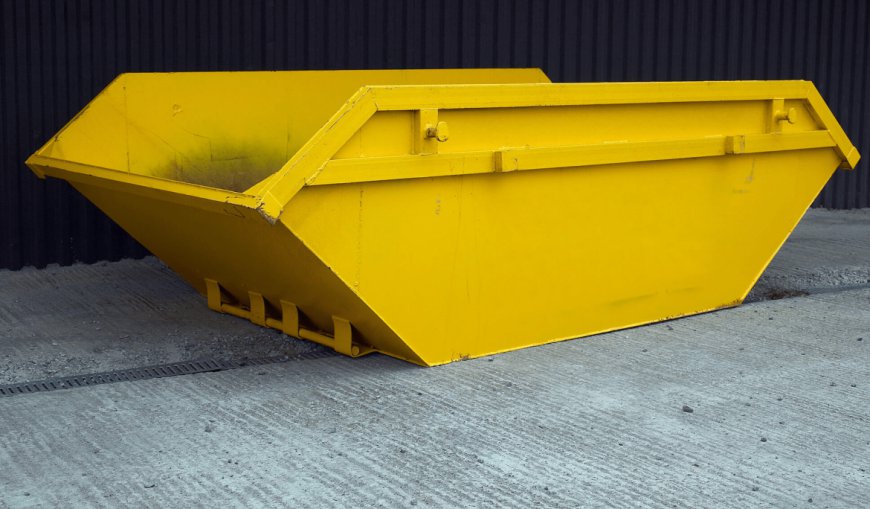Tips for Maximizing Your Skip Bin Hire Efficiency

Skip bin hire is a convenient and cost-effective solution for managing waste during renovations, spring cleaning, construction projects, or garden overhauls.
However, improper usage can lead to inefficiencies, additional costs, or even penalties.
To get the most out of your skip bin hire, follow these practical tips to ensure maximum efficiency, compliance, and value.
1. Choose the Right Skip Bin Size
One of the most common mistakes people make is underestimating or overestimating their waste volume.
Skip bins come in a variety of sizes, ranging from small 2m³ bins to large 10m³ options.
Selecting the correct size is crucial to avoid overloading or having to hire a second bin. To choose the right size:
-
Assess the type and quantity of waste you plan to dispose of.
-
Consult with your skip bin provider for recommendations based on your project.
-
Opt for a slightly larger bin if you’re unsure, as overfilling a bin can result in extra fees.
2. Sort Your Waste Effectively
Not all waste can be disposed of in a skip bin. Sorting your waste beforehand ensures compliance with local regulations and helps avoid additional charges.
Most skip bins allow for the disposal of general waste, green waste, and construction debris.
However, hazardous materials like chemicals, asbestos, batteries, and paint are typically prohibited.
-
Create categories for your waste: Separate recyclables, green waste, and general rubbish.
-
Dispose of hazardous materials separately: Contact your local council for advice on proper disposal of restricted items.
-
Flatten or break down items: This saves space and allows you to fit more into your skip bin.
3. Load the Skip Bin Strategically
Efficient loading is key to maximizing space within your skip bin.
Haphazardly throwing items in will lead to wasted space and the potential for overfilling, which could result in fines. Instead, adopt a methodical approach:
-
Place heavier items at the bottom: Start with bulky, heavy materials such as bricks, concrete, or furniture. This creates a stable base.
-
Break down large items: Disassemble furniture, flatten cardboard boxes, and compact materials wherever possible.
-
Fill gaps: Fit smaller items like bags of waste, soil, or debris into gaps between larger objects.
-
Avoid overfilling: Keep the contents below the bin’s rim to comply with transport and safety regulations.
4. Book Your Skip Bin at the Right Time
Timing your skip bin hire correctly can save you time and money.
Hiring a bin too early may result in wasted rental days, while booking too late can lead to project delays. To avoid these issues:
-
Schedule your skip bin hire to coincide with the peak waste generation period of your project.
-
Choose a provider with flexible rental periods to accommodate changes in your timeline.
-
Arrange for quick pickup once the bin is full to avoid unnecessary clutter and costs.
5. Understand Local Waste Disposal Regulations
Each region has its own rules and guidelines for waste disposal, and it’s essential to familiarize yourself with these to avoid penalties.
Skip bin companies often provide guidance, but you should still:
-
Check what is and isn’t allowed in your skip bin.
-
Inquire about recycling requirements: Some companies offer specific bins for recyclables or green waste.
-
Be aware of weight limits: Exceeding the allowed weight could incur extra charges.
6. Avoid Prohibited Materials
Skip bins are not a catch-all solution for every type of waste.
Disposing of restricted items can lead to hefty fines or the refusal of your bin for pickup. Commonly prohibited items include:
-
Hazardous chemicals
-
Asbestos
-
Gas cylinders
-
Medical waste
-
Tyres
If you need to dispose of these materials, contact your local waste management authority for safe alternatives.
7. Plan for Easy Access
Ensure the skip bin is placed in an accessible location that doesn’t obstruct movement or cause inconvenience. When deciding on placement:
-
Choose a flat, stable surface: Avoid areas prone to sinking or sloping.
-
Keep it close to the waste source: This minimizes the time and effort required to transport items to the bin.
-
Comply with council regulations: Some areas require permits for placing skip bins on public property such as footpaths or streets.
8. Maximize Recycling Opportunities
Skip bin hire isn’t just about disposing of waste—it’s an opportunity to minimize your environmental impact by recycling.
Many materials commonly found in skip bins can be recycled, including:
-
Cardboard and paper
-
Metals
-
Plastics
-
Green waste
Ask your skip bin provider if they offer recycling options or separate bins for specific waste types.
By taking a few extra steps, you can reduce the amount of waste sent to landfills and support sustainability initiatives.
9. Communicate with Your Skip Bin Provider
A reliable skip bin provider is an essential partner in efficient waste management.
Open communication ensures you get the right bin for your needs and avoid surprises.
Discuss the following with your provider:
-
Waste types and volume
-
Delivery and pickup schedules
-
Additional fees or restrictions
A good provider will offer tailored advice and solutions to help you optimize your skip bin usage.
10. Use Multiple Bins for Larger Projects
For extensive projects, such as home renovations or commercial cleanouts, hiring multiple smaller bins instead of one large bin can be more practical.
This allows for better waste segregation and easier management of materials.
Conclusion
Maximizing your skip bin hire efficiency requires a combination of careful planning, strategic loading, and compliance with local regulations.
By choosing the right bin size, sorting your waste, and communicating effectively with your provider, you can save time, reduce costs, and contribute to eco-friendly waste management practices.
Whether you’re tackling a small clean-up or a major renovation, these tips will help you make the most of your skip bin hire.
